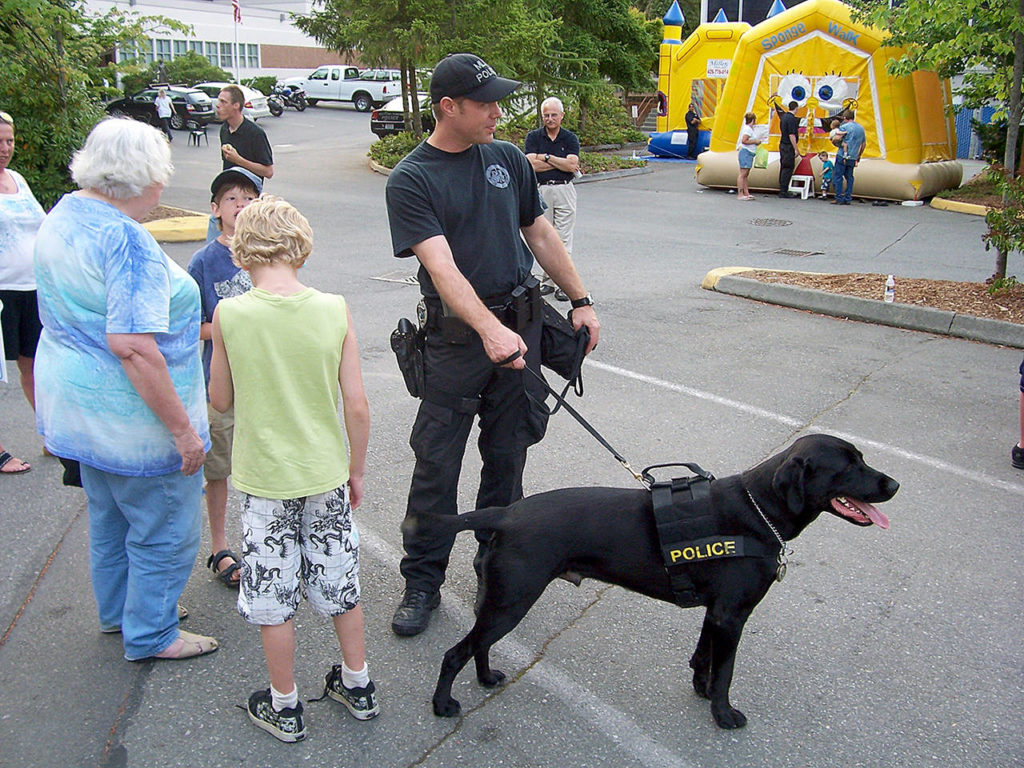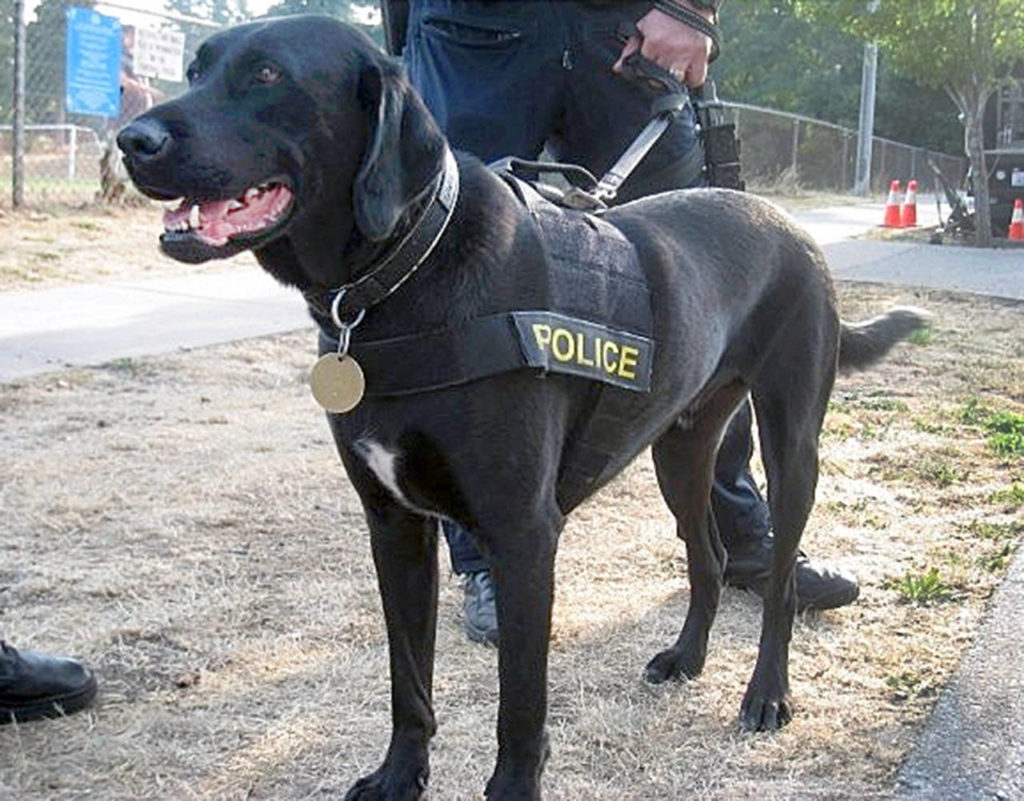MOUNTLAKE TERRACE — A police dog with a reputation for sniffing out crime has died.
K-9 Hunter, a field Labrador, served Mountlake Terrace police for about six years, and he was often in demand for undercover work because of his knack for finding drugs.
“Hunter was widely recognized as the best narcotics dog in the region and responsible for hundreds of pounds of drug seizures over the years,” Cmdr. Mike Haynes said in an email.
Hunter, 14, was euthanized in April, three weeks after he first showed signs of mouth cancer, said the dog’s handler and owner, Sgt. Scott King.
Other officers sent messages to King when they heard Hunter had died.
“Hunter didn’t just help us do our jobs, he helped us decompress during stressful shifts with games of fetch at the station and head pats,” read one note. “He did so much for us in his time here and he will never be forgotten.”
As a puppy Hunter was so full of energy he’d been given up by his first family before his second birthday.
“One thing about a high-drive dog, sometimes they don’t make good family dogs,” King said.
The pair started training together on McNeil Island in 2006. He was a passive-alert dog, meaning when he found something, he’d sit — and then shake with excitement because he knew he’d get rewarded with a tennis ball.
“Working wasn’t work, it was a game and it was fun,” King said.
Hunter could find meth, heroin, cocaine and cannabis. He retired when Washington voters legalized weed at the end of 2012. His handler was also promoted to sergeant at the same time. And given how much time they’d spent together — just about every waking moment — King isn’t sure if the dog would work well for anyone else. They knew each other’s routines.
Hunter never chased down people. Anytime he was called to a scene, the suspects were already in handcuffs. He worked closely with a regional narcotics task force, helping to secure warrants.
He went on hundreds of calls, helping out police agencies around Puget Sound.
One time, a suspect learned the black Lab from Terrace would be doing the sniff search, and just surrendered the drugs based on Hunter’s reputation, King said.
Hunter could be insistent. Once as they circled a stopped car, Hunter jumped through a rolled-down window onto the front seats to alert King to the cash and cocaine that were stuffed in a compartment by the air bags.
Off-leash at work, he could ignore distractions, like cats and other animals. But one of King’s favorite memories is a time when Hunter keyed in on a bag of fast food for further investigation. Hunter pulled his snout out of the bag. He had a single french fry dangling from his mouth, and a look in his eyes that said, “Just this one time?”
The city hasn’t had a police dog since Hunter.
After turning in his badge, Hunter was adopted by King. He’d sit beside the window and wait for his partner to come home. He became a good family dog, who would let King’s young boys rough-house with him, and never growl.
On camping trips, he’d mosey up to other campsites, make fast friends with the neighbors and sit in front of them. This was in the post-prohibition era for Washington’s marijuana laws.
“What they didn’t know is he was telling me they had weed in their pockets,” King said.
He’d tagged along on many family vacations.
“He had a heck of a life,” King said.
Caleb Hutton: 425-339-3454; chutton@heraldnet.com. Twitter: @snocaleb.
Talk to us
> Give us your news tips.
> Send us a letter to the editor.
> More Herald contact information.



























